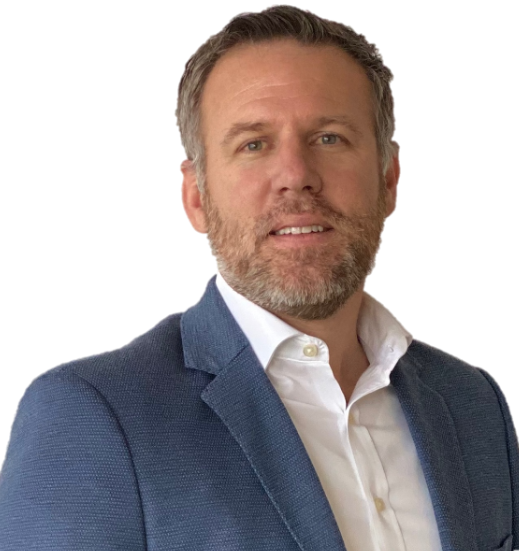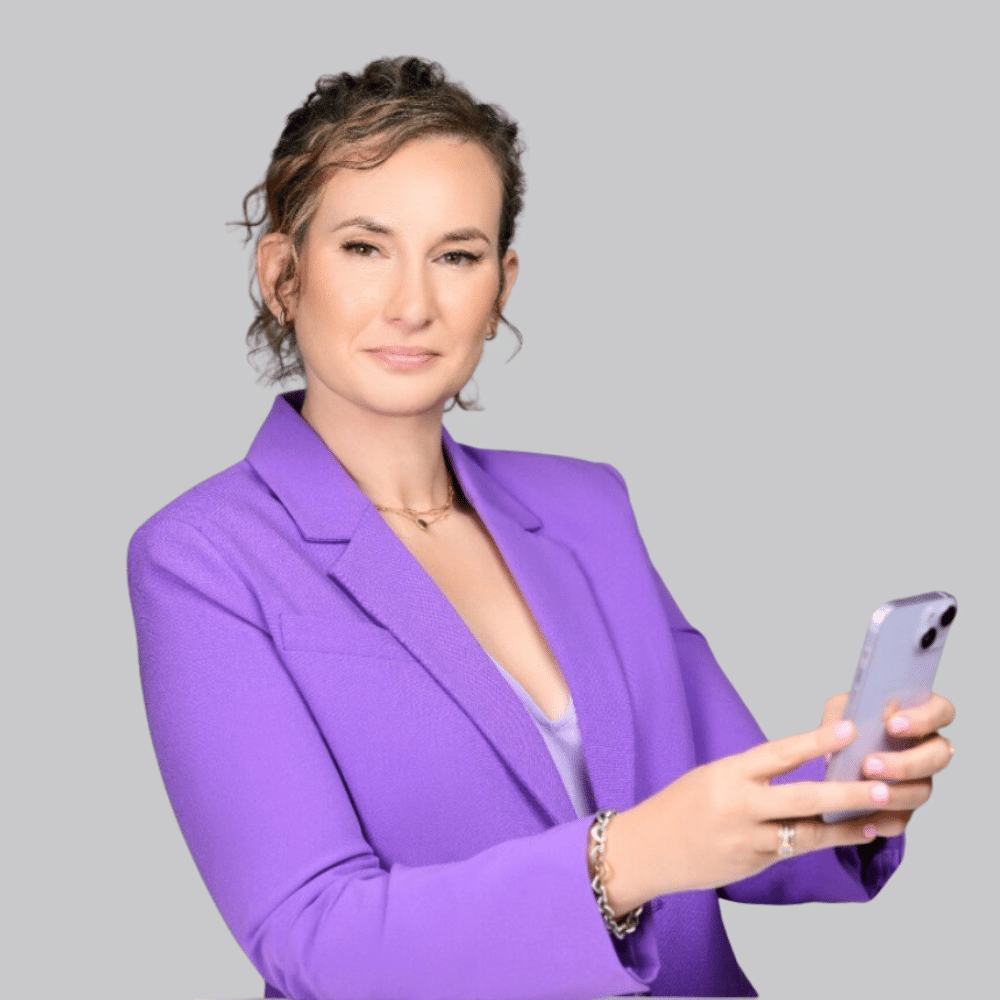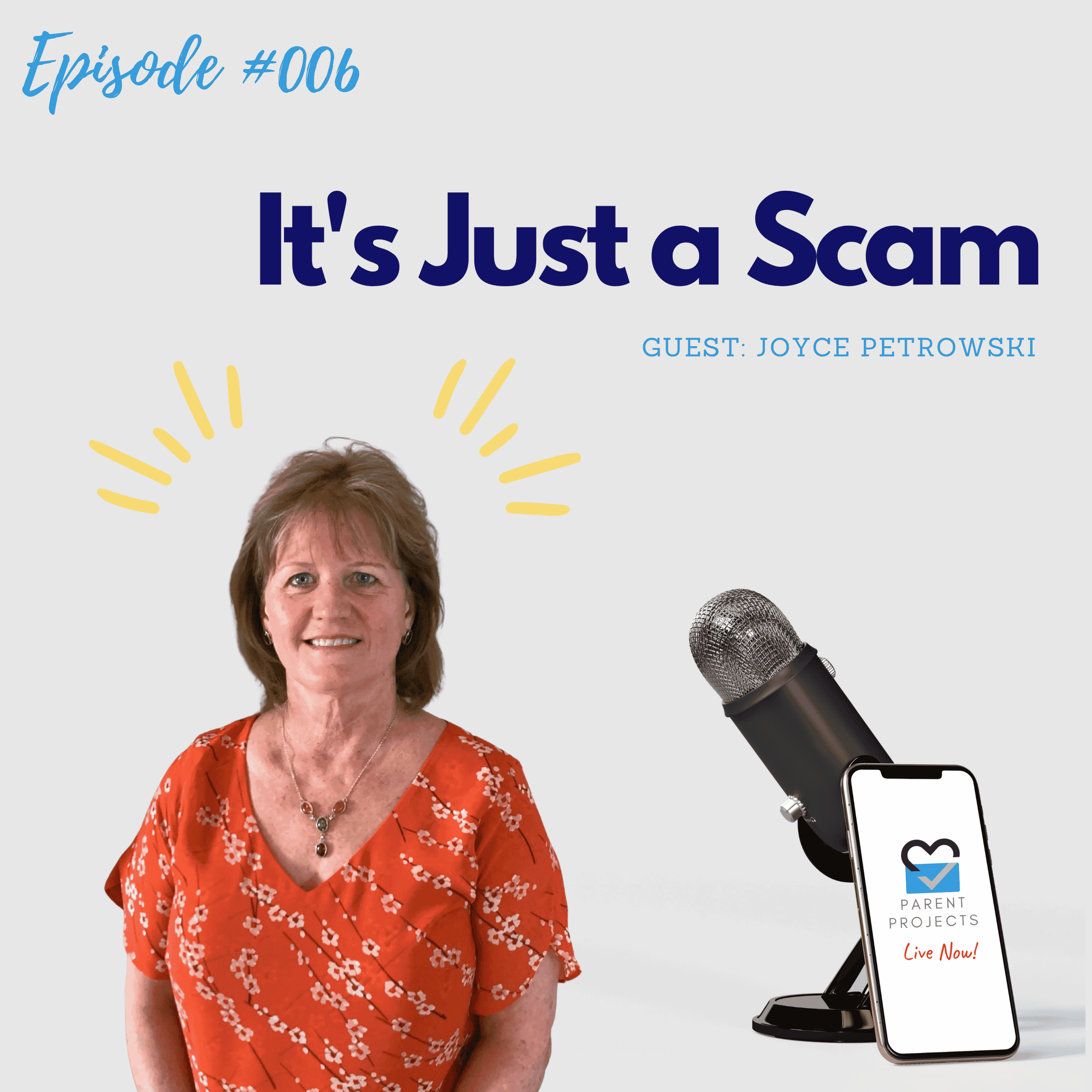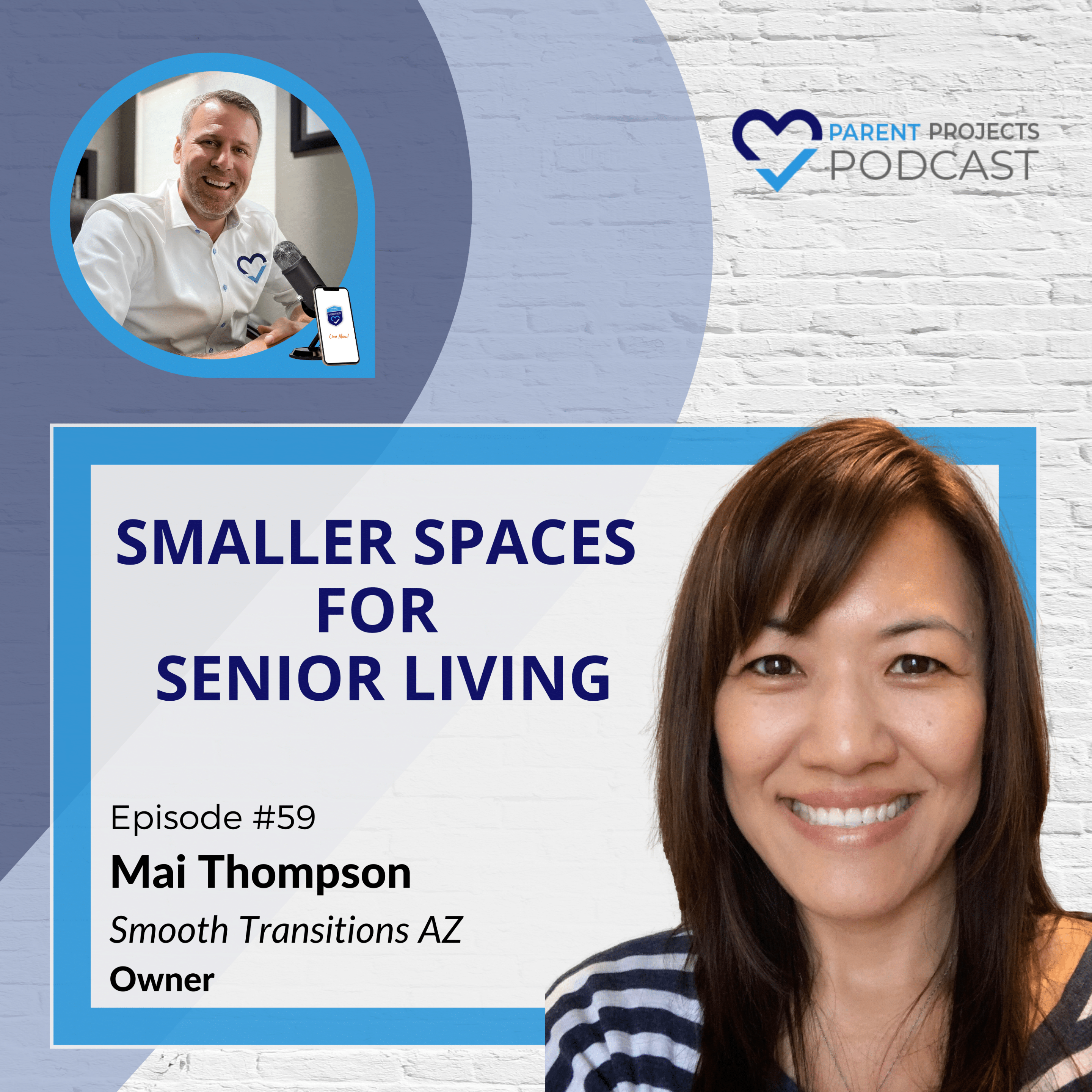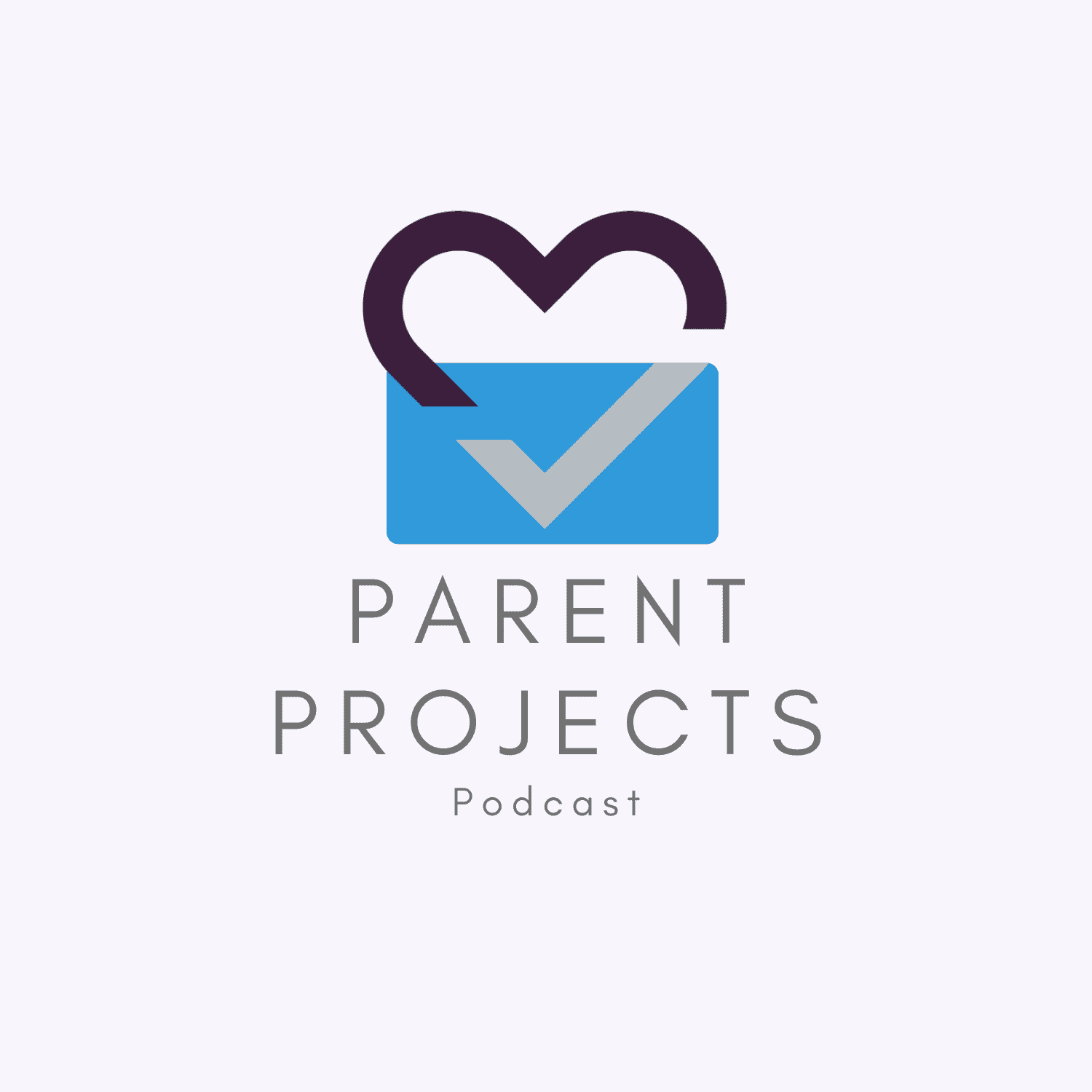Episode Transcript
[00:00:06] Speaker A: Hi, and welcome to aging in America. I am your host, Bena Coleman, and I am so excited to be here today with Noelle Graham. Noelle Graham is an occupational therapist in a level one trauma center, and today she's going to chat to us about trauma, which is such an important topic for so many people who may not have experienced it and goddess forbid, do in the future. Noelle has been with us before, so welcome, Noelle, we're so excited to have you back.
[00:00:33] Speaker B: Thanks for having me.
[00:00:35] Speaker A: And right off the bat, I know this is kind of your forte. You spend your time every day in a trauma center. What do people should or could expect a few days, two to three days after a traumatic experience?
[00:00:49] Speaker B: I think basically just a lot of people coming into the hospital room. Doctors, different types of specialists, nephrologists, physiatrist, neurologists, hospitalists, intensivist, lots of cardiologists, cardiothoracic surgeon. It just depends. Orthopedic. It just depends on when we're talking about traumas, either. Vehicle accidents, sometimes motorcycle accidents, atv accidents, falls are obviously probably the number one traumas I see in this population.
A lot of people coming in and kind of honing in on their specialty areas and trying to figure out how to best heal this person kind of as quickly as possible.
[00:01:33] Speaker A: Yeah, you just listed off so many important people that do touch every single trauma patient. So thank you. Because I think that it can be kind of scary and overwhelming, especially for a family member watching people come in and out all day of your loved one's room. Especially, like you said, it could be a fall of a senior citizen that's scary enough. And then you're having all these people coming in. So I think it's important to know that that's pretty much typical and it's going to be what you should expect.
[00:02:04] Speaker B: Absolutely. Also, sorry. Sorry. Go ahead.
Well, just talking about once that person is medically stable, they'll send physical, occupational, and speech therapy to come in and kind of say, what's the aftermath? How are things looking now that that person is stabilized? And sometimes that happens the very next day, which is kind of surprising to some people. Man, I was just in a car accident. You're getting me out of bed today. Yes, we are. Because there's a lot of ill effects of laying in bed from respiratory issues, bowel and bladder issues, deconditioning. You can lose three days of strength in one day just laying in bed.
There's just going to be, like you said, a lot of people coming in and assessing things very quickly, a lot of information being thrown at you at once. Those faces can change every day. You may not have the same doctor day to day. Every discipline could change.
[00:02:58] Speaker A: You touched on so many different doctors and people coming into the hospital room. It is true. I mean, this is reality, right? You're dealing with a trauma, traumatic experience. And I think it's very important for people to understand they're gonna be with their loved ones, seeing just people in and out all day. But they're all there for that reason of helping and wanting to move forward and getting your loved one healthy, safe, and back to their normal self. So I think it's important, and thank you for mentioning all those people.
And so what else goes into it after these doctors, all these people have come in and out right at the beginning of the intake of being in the hospital.
[00:03:39] Speaker B: So once they're stable, they'll typically order physical, occupational, and speech therapy to come in. We look at their mobility, their balance, their self care. Can they get to the bathroom? Could they bathe and dress themselves? But really, in that acute stage, are their vital signs looking like, how are they managing their pain? Are they able to tolerate sitting on the side of the bed for five or ten minutes? Are they going to be non weight bearing? Say they've broken their shoulder and their hip, and they're non weight bearing. So they use a walker. They're not going to be able to use a walker. Like, how long are they going to be kind of off their feet? And what does that recovery look like? What does that timeline look like? How is mom or dad going to be able to tolerate that? We're dealing with people that have been alive for a long time. These people have diabetes, COPD, medical deconditioning, different Parkinson's, different cardiac issues, a lot of orthostatic hypertension, medication reactions. You know, there's just so many things that go into it. Maybe they were pretty sedentary before. They just, you know, aren't getting up and moving around. So you take somebody that their life, daily activity is to get out of bed and get something to eat and sit in their couch and then go to bed and go to the bathroom maybe couple times, and then you have them fall. And now we've got all these injuries, and then we have all these metabolic issues with their. Their medical stability. Like, what does that quality of life look like as they recover?
What does that family member want? What's important to them when they leave the hospital?
[00:05:09] Speaker A: Quality of life is it. I know that you and I have talked offline, and we agree that the quality of life and really determining what that means to each person is so, so important.
So, you know, this is, again, a very common thing we hear on all our podcast episodes is have these discussions before. Correct? Am I in the right direction? Noelle, you want to know what that looks like to you, to your loved ones, who you're caring for, because it could be different things for different people, but you're all going to be dealing with what is this person's quality of life to be expected after a traumatic event? So it is so true.
You have seen this so much. Like I said, you're in this every day. This trauma unit, this trauma center, falls. That happen? I'm assuming when a senior comes in, that's most of the trauma that we're gonna see is falls. What is something that you would say to somebody to reduce the risk of falls, let's say, at their own home. I know it's happened. It's going to happen. But if you had any insight of what is something to tell someone at their own home before they come to see you, what would that be?
[00:06:21] Speaker B: Oh, my gosh. That's such a very good, broad question. I think the first one I would say is make sure you have somebody that's following their medications very closely.
The metabolic structure of an older person is so sensitive, you could change a prescription, five milligrams, and it completely throws off their system, monitoring their hydration and their nutrition, especially if they get dehydrated. You're looking at urinary tract infections. You're looking at people that don't have the nutritional support. If they fall, they're not going to have that bone structure to prevent fractures.
Having a professional, maybe having your healthcare provider order PT and ot for a home health assessment to see what that environment looks like. How can we make their environment more safe? What kind of durable medical equipment do they need? Do they need a walker? Do they need a shower chair? How can we set these people up for success? And if they should fall, I really recommend the home buddy, the medical alert assistive device, where either a bracelet or a necklace so that if they do fall, there's a plan. A lot of people say, oh, I use my cell phone. Well, how often do we go in the other room? And our cell phone is in the kitchen. Right. So having something that's attached to your body where you can activate it, should you be able to be awake when you do fall is huge.
[00:07:45] Speaker A: Yes. All. Yes. This is what Noelle talked about in her first episode with us, so please go back and listen because it is extremely important, as she is seeing trauma from falls. But let's get back to the falls. Let's use a mom, just a mom, as an example. Your aging mom fell. She's in your unit. What are some of the expectations that that family can expect with, with this trauma?
[00:08:15] Speaker B: A lot of times there's a lot of confusion that goes into it because some people have underlying dementia that maybe hasn't been diagnosed or, you know, maybe they just have that, you know, aging process. The memory isn't quite as what it used to be. There is no sleep in the hospital. You may get cat naps, but it wouldn't take long for me, after a night's sleep and a couple nights sleep, not to get quite delirious. And that happens with older people as well. Then you throw on pain medication, say they had to be innovated and sedated. They're kind of out of their element. That there's medications that are keeping them asleep and that metabolizes in their system. Confusion is huge. That's something to be very, very aware of, that you and I can recover a lot faster from that. They just aren't going to metabolize those medications as well. And then they call it ICU psychosis. So if you're in the ICU for a day or two, night is day, day is night. It's just all over the place. So just being aware that sleep hygiene, if you can have the nursing staff and the doctors help you with that is so very important.
[00:09:19] Speaker A: Yeah, it's all such great points because you're right. When someone is in that ICU dealing with a trauma, they don't understand. They don't know what's going on. So it's important to be that advocate for that, your aging loved one, and.
[00:09:33] Speaker B: Especially if you get some sort of traumatic brain injury, too. I mean, it can be a very small head bleed, and that just throws the whole equilibrium out the window. And so you put all that together and it's kind of a perfect storm for things to be a lot more complex than they were before, especially if you're dealing with, you know, rib fractures or, you know, respiratory issues. Like I said, bone fractures, all sorts of different things that can happen with a trauma that there's just so much going into it.
[00:10:04] Speaker A: So let's also talk about, we did touch on in the beginning of this episode, but quality of life, it is such an important topic because things change in an instant. We're talking about traumatic events following being one of them. So much can change, so can you touch a little bit on a. What that change can be, and then I'd love to kind of dive in with you on that quality of life piece.
[00:10:30] Speaker B: So just losing mobility in general, you know, you know, you lay in bed for one day and it takes three days of therapy to get better and get stronger. And that's pretty aggressive, and that's an optimistic number as well. So it's just. Just being aware that that strength and mobility goes down very quickly for every day you're in bed. And just keeping that realistic. Well, you know, we'll just give mom a few more days to get better and to heal, and time is just clicking by at a very, very fast rate. And so just being very cognizant about, you know, being an advocate for your family is ptot or speech? Are they on board? Can the nursing staff get them up? Can they get them moving? Is it feasible? And then, like you said, just that quality of life aspect. Does mom want to really battle through this? Like, what. What can we do to keep her comfortable? You know, as a therapist, I struggle with that because you have to do tough love. People don't want to get up. They're in pain. They're hurting. Versus some people that you just need to encourage and they want to get better, but they just need that kind of gentle push versus people that are adamantly saying, I don't want this. I want to die. I'm done. Right? And so it's kind of how we talked about just having those conversations before the traumatic event. Hey, mom, dad, if you do fall and this happens, just kind of playing out some of those worst case scenarios, talking about what your expectations would be for them and what they would want in that situation.
[00:11:56] Speaker A: You've touched on this, but it was the quality of life. And how much longer should someone live like that if they're not moving, if they have a breathing tube, if there's so much that goes into this traumatic event, right, what is keeping them there? Why are they fighting? If, you know, you can even ask the doctor. I'm sure you know this better than me, so please correct me if I'm wrong, but you can even ask the doctor, the OT, whoever, like, what can I expect? Can I expect this breathing tube to be in my mom for two days or for life?
[00:12:31] Speaker B: Right.
[00:12:31] Speaker A: So I think you can kind of get a good idea of the quality of life from these pressing questions.
[00:12:36] Speaker B: Absolutely. And I think, you know, as a healthcare community, we're all trained to help people get them better, but there, you know, there are times when I feel like older people are tired, they're hurting before, and then they have a traumatic event. And, you know, I like that first, do no harm. So are we doing benefit to them or are we doing more harm by putting them through more surgeries and more procedures when maybe that's ultimately what they don't want?
[00:13:05] Speaker A: Do you find being in the trauma center that if a family member were to say to you or anyone in that unit, really, is that surgery going to help my mom? Do you find that you guys are really giving them the right answer? You guys are trying to nudge them one way rather than another, I'm assuming. It's very dependent on the situation.
[00:13:27] Speaker B: It is. I'm very proud of the level trauma one center that I work at because a lot of it is pain management. We're seeing a lot more rib plating with, like, rib fractures, which nobody wants to go through another surgery, but they do so much better after they have that metal rib support. So even with our hospice patients say somebody fell and broke their hip, they'll sometimes do surgery because it's just going to make their pain better. So, you know, I think that's when it, you know, you have to weigh the risks of benefits of every surgery because every surgery is dangerous and there's risks that come with it. But is that surgery going to improve their quality of life? We obviously don't want somebody suffering because we just don't want to put them through another surgery. There's a lot of variability in that. But again, quality of life, what does mom and dad want?
What are their goals? Because, let's face it, they've earned the right to live the rest of their life as comfortably as possible. So how do we help them do that realistically?
[00:14:26] Speaker A: I love that saying. They have earned that right. This is something that we're saying they're aging. We are assuming at this point that they're going to be the aging population. They've lived a great life at that point. Let's hope you've had these conversations and they can say what they want to do at this very hard time. It's not easy. It's not easy to have the conversation. It's not easy to do it in the time, but it is something that has to happen. I feel like it just is. Every time I talk, it's like, have these hard conversations. You need to do it.
There's us, there's parent projects. There's so many resources to get those conversations started. And as hard as they are, very important. What you see every day absolutely.
[00:15:12] Speaker B: I always encourage family to kind of punt that there's sometimes a favorite sibling or a niece or a nephew. But even more importantly, when you're going to those annual or, you know, quarterly checkups, have the doctor say, look, I'm really, I'm worried about mom, or we're getting to that age. Can you have a conversation with them about XYZ or whatever is kind of on your heart or what would be if she's at risk of falling? She's on twelve medications. She's using a walker now. Her vision isn't good. What's the plan if she does fall or gets into an accident? What can you help me establish some boundaries for her or him? It doesn't always come easy from the kids because they're not the parents, but we're kind of putting into that parenting role and that sometimes makes for some, like you said, very different, difficult conversations. So utilize those resources that maybe it would come better from someone else.
[00:16:03] Speaker A: It's so funny you say that. That's my biggest tip to everybody, is bring in that third party if available. I say a spiritual leader that, you know, your parent loves, a priest, a rabbi, whoever that third party is, it makes that conversation better as we know it is a hard conversation.
[00:16:21] Speaker B: Right.
[00:16:22] Speaker A: So that was great. That was great advice. So are there any specific questions that I should ask the doctor when navigating these decisions? I think, you know, we did talk about, like, will this breathing to be in my mom for days or forever. But besides that, is there any piece of advice you would give on what to ask?
[00:16:42] Speaker B: What, what are the real, and again, relying on the doctor, but also the physical and occupational therapy. Like what is the, what is a, nobody's the same, but what is kind of a rough estimate? Oh, they have a hip fracture, so they're probably going to be non weight bearing for six to eight weeks, meaning they're probably going to be in a skilled nursing facility, transferring two from the bed of to and from the bed to the wheelchair to the commode or trying to use, how to use a walker to keep the weight off of that leg with somebody that's 95 and already has a bad other hip or a knee replacement that failed and they can't see and they can't hear. Like, what is a realistic goal of what the next couple months is going to look like? What, what are the barriers? What medical issues are they going to have? How can we manage their pain without making them more confused or have more, you know, bowel and bladder issues? Because they're constipated? Like what? There's so many questions that go into that. But realistically, what's the next 60 days look like?
[00:17:39] Speaker A: I love hearing that, actually, because I feel like you are being realistic with 60 days. So what is that? Two months? So instead of saying, oh, I got to get my mom out of here, she's getting really agitated. You know, this is not an overnight journey, this minimum two months, right?
[00:17:58] Speaker B: I would say, oh, absolutely, 100%.
[00:18:01] Speaker A: Yeah.
[00:18:01] Speaker B: And if you had concerns of your loved one living home alone before or with a family member or a spouse that they're the caregiver for, or they were already getting a lot of help, what's realistic in 60 days? Is even going home going to be an option at all?
[00:18:17] Speaker A: Yep. Yes. That is a very, very big topic, which I think really dives into that quality of life.
[00:18:25] Speaker B: Absolutely.
[00:18:26] Speaker A: We have hit on and really, I think, can drive a lot of the deciding factors of the trauma, unfortunately.
Wow, you just. You're so good at this. And it's so interesting to talk to somebody who's seeing the trauma every day to know that this is real life and this really could happen.
[00:18:47] Speaker B: That's right.
[00:18:50] Speaker A: As somebody who's seeing this, you're in it every single day. What is the number one thing people wish they knew sooner?
[00:18:58] Speaker B: I think prevention, that's why I like to be on this side of it versus the aftermath. I feel like the next, I don't know, phase of my career. I really want to hone in more on prevention because I think a lot of it could be preventable. Not all of it, obviously, but just like you said, that home health assessment going annually or even biannually to the doctor and getting that vision checked, getting those balance check, getting that cognitive assessment, driving assessment, kind of see if they can simulate that. Because we do see a lot of elderly people that are driving that probably shouldn't be and that results in car accidents.
So really try to be as having these upfront conversations, be as preventative as you can empower yourself, like with this parenting app or other community resources that are available. And as we're in this baby boomer age, there are so many resources. But I love the parenting. I'm not trying to, you know, sell a product, but because it's all in one place. I don't care where you get, but there are different companies that are starting to put all their information together because, let's face it, we're all busy. And this generation that's taking care of our older patient population, have their own family, have their own career. So if you can find a specialist or somebody in the community that has a lot of resources and hone in on that and try to empower yourself as easily as you can, you've touched.
[00:20:19] Speaker A: On so much right in that last sentence alone. And it is so true. We are a generation, and I truly call us the sandwich generation, that are caring for our aging loved ones and then children, you know, if we have them, you are that middle person. You are that meat between the breads who are figuring it out. Like you said, we are parent projects. So we do have those resources that have all encompassing knowledge, but there are others that people can visit and Google and look for. But I think that prevention knowledge is power really is going to be your biggest help and advocate.
[00:20:57] Speaker B: I would say one more thing too. I feel like in this generation it wasn't, I don't know, it wasn't accepted regularly to talk about end of life decisions. I think it was just a very private time. Plus, people weren't living as long as they are now. You know, we have all these medical advancements, but sometimes it's not for the better. So it. This is kind of a special generation that obviously nobody's had to deal with before. This is kind of a nuance in healthcare, is how do we have those conversations and deal with medical technology that's keeping people alive longer? But should they? Is that what that person really wants? Again, going back to that quality of.
[00:21:36] Speaker A: Life, it's really refreshing talking to you about this because it is true. There are these, like you just said, life saving medical technologies.
But what does that mean for the person who's going through it? So that's very refreshing to hear.
Any final thoughts for us. I know we covered so much, so many important points and topics. Anything you want to share before we close?
[00:22:01] Speaker B: I would just say probably as, I mean, my parents are very healthy, but after seeing people go through this, you have to take care of yourself as much as you can. You can't take care of other people if you can't take care of yourself. So like I said, just talking to somebody, confiding in somebody, looking at these resources so that you feel as comfortable as you can making these decisions. But it's tough, you know, it's just a tough time. You're also dealing, like you said, I'm dealing with teenagers now and then. If I had to deal with my parents at the same time, I don't know if I could make it. So just really trying to surround yourself with a big support group that can kind of help you deal with the stress, because it is so stressful. It's your mom, it's your dad. You may have a good relationship with him. You may not have. It's so multifaceted that, you know, just try to take care of yourself as best and be patient with the process, and you're just doing the very best you can.
[00:22:55] Speaker A: You said something about taking care of yourself, and I always go back to that cheesy analogy, but when you're on the airplane, the whole point is to give yourself the oxygen first. And when I talk about and care about caregiver burnout so much and what I do, it's always that, make sure you are taking care of yourself. I know it's easier said than done, but as you just said, noelle, extremely important.
I really want to make sure I have all this trauma is scary. It's overwhelming. So, you know, just correct me if I'm wrong, but really, it's the prevention first. Make sure you're having these hard discussion, discussions, questions. You're. You're kind of figuring out everything with your aging loved ones. On top of that, when you're in the hospital, God forbid, into these trauma centers, you want to know what the expectation of coming out of this is going to be? Is this going to be a two month minimum? Are we looking at longer? What, what does that mean? And what does it mean for you and your loved one? And I think that's the most important. And then really taking care of yourself. I know we just talked about that, but that's something I tend to reiterate a lot, because chances are you're going to be the one taking care of your aging loved one. So you want to make sure you're healthy as well. Anything I missed in those final steps.
[00:24:09] Speaker B: Of trauma, again, just touching on that advanced directive, you know, just because mom or dad has said, you know, I don't want to be intubated, or I don't want, you know, chemical intubation with medication or whatever, doesn't mean it's written down on paper. The facility, the hospital has to have that information. So I know the primary care doctors can do that. They can help you with that in the hospital. But that's a really bad time to have that conversation if you can't communicate with your loved one for whatever reason. But again, relying on lawyers, do it as well. I think you can even do it online fairly reasonably. So just, again, that's part of that preventative. Have that in writing. Have that tough conversation. The nice thing about those advanced directives is they usually line it out. It's yes or no if and or but just having those conversations, those different scenarios that kind of help guide you through your decision making.
[00:25:00] Speaker A: Well, this is wonderful. You're a wealth of knowledge, so thank you for sharing it with us.
Make sure that everyone here is following us at parent projects on all of your favorite social media platforms. And Noelle, just thank you again for sharing your time, talents and treasures with us.
[00:25:15] Speaker B: Thank you so much.
[00:25:22] Speaker C: Well, that's it for this team this week, and thanks for joining us. If you've enjoyed the content, remember to subscribe and share this episode on the app that you're using right now. Your reviews and your comments, they really help us expand our reach as well as our perspectives. So if you have time, also drop us a note. Let us know how we're doing for tips and tools to clarify your parent project, simplify communication with your stakeholders, and verify the professionals that you choose. You can find us on YouTube, follow us on Instagram and Facebook. Thanks again for trusting us. Until our next episode. Behold and be held.
[00:25:54] Speaker A: Thank you for listening to this parent projects podcast production.
To access our show notes, resources or forums, join us on your favorite social media platform or go to parentprojects.com.
this show is for informational and educational purposes only.
Before making any decisions, consult a professional.
[00:26:13] Speaker C: Credentialed in your local area.
[00:26:16] Speaker A: This show is copyrighted by Family Media and Technology Group, Inc.
And Parent Projects, LLC.
Written permissions must be granted before syndication or rebroadcast.
